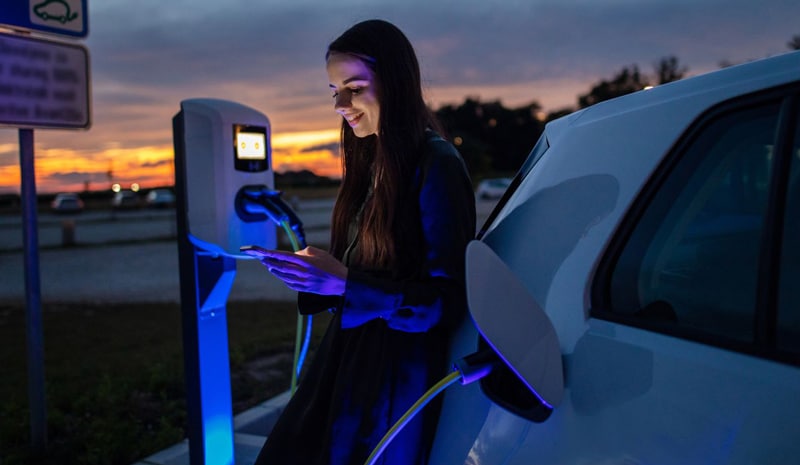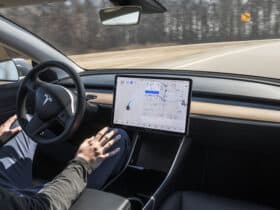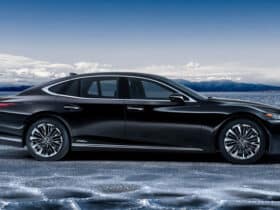Electric vehicles (EVs) have taken the automotive industry by storm, promising a cleaner, more efficient, and budget-friendly mode of transportation. As concerns about climate change grow and fuel prices fluctuate, many consumers are turning to electric cars to not only reduce their carbon footprint but also save significantly on their overall expenses.
Advantages of Electric Vehicles
The advantages of driving an electric vehicle extend beyond the environmental benefits. One of the most attractive factors is the reduction in carbon emissions. EVs produce fewer greenhouse gases compared to traditional internal combustion engine vehicles, contributing to cleaner air and a healthier environment. Moreover, the cost savings associated with driving an EV are substantial. Electric cars are more energy-efficient and have lower operating costs due to their reliance on electricity over gasoline. With fewer moving parts, EVs also require less maintenance, which translates to further long-term savings.
Purchase Incentives and Rebates
Governments around the world recognize the importance of transitioning to electric vehicles and often offer incentives to encourage buyers. These incentives may include tax credits, rebates, or reduced registration fees for electric car owners. State and federal governments in many countries provide financial support to individuals purchasing EVs, making the initial cost more manageable.
Manufacturer Discounts and Promotions
Car manufacturers themselves are eager to accelerate the adoption of EVs, often offering attractive discounts and promotions. These can range from cash rebates to discounted financing rates. Special deals might be introduced during certain times of the year or in response to market trends. Keeping an eye out for manufacturer promotions can result in significant savings.
Negotiating with Dealerships
When purchasing an EV, it’s important to approach negotiations with confidence. Dealerships are increasingly motivated to sell electric vehicles and might be more open to negotiation than you think. Highlight the benefits of EV ownership, including lower operating costs and environmental advantages, during your negotiation. This could tilt the balance in your favor and lead to a better deal.
Considering Total Cost of Ownership
While the upfront cost of an electric vehicle might seem higher than that of a traditional car, it’s essential to consider the total cost of ownership. EVs generally have lower operating costs due to their efficiency and lower maintenance requirements. Over time, the savings on fuel and maintenance can offset the initial investment.
Researching Available Models
With the increasing popularity of EVs, there’s a growing variety of models available on the market. Researching different models and their features is crucial to finding the right fit for your needs. Reading reviews and seeking out user experiences can provide valuable insights into the performance, range, and features of various electric cars.
Leasing vs. Buying
Leasing an EV is an option worth considering, especially for those who prefer flexibility and shorter-term commitments. Leasing typically involves lower monthly payments compared to purchasing, and it allows you to drive a new model every few years. This can be a cost-effective way to experience the benefits of electric driving without the long-term commitment of ownership.
Financing Options
If you decide to purchase an EV, various financing options are available to make the process more affordable. Some financial institutions offer specialized loans for electric vehicle buyers, often with competitive interest rates. Exploring these options can help you secure financing that fits your budget.
Resale Value of Electric Vehicles
Concerns about the resale value of EVs have decreased as these vehicles have become more mainstream. As EV technology continues to advance and charging infrastructure improves, the resale value of electric cars is expected to remain strong. Factors such as battery life, technology upgrades, and overall market demand will influence the resale value.
Lexus Advanced Safety Technology: Ensuring a Safer Driving Experience
Charging Infrastructure
Access to charging stations is a critical factor for EV owners. Fortunately, the charging infrastructure is rapidly expanding, with more charging stations being installed in urban centers and along major highways. The convenience of charging at home or at public stations makes EV ownership increasingly feasible.
Maintenance and Repairs
Electric vehicles have a simpler mechanical structure compared to traditional vehicles. With fewer moving parts and no internal combustion engine, the maintenance requirements are significantly reduced. This translates to lower maintenance costs over the lifetime of the vehicle.
Future of Electric Vehicle Pricing
As technology continues to advance and production scales increase, it’s reasonable to expect that the cost of electric vehicles will decrease over time. The market is already seeing a trend toward more affordable EV options, and this is likely to continue as innovation drives down manufacturing costs.
Conclusion
In conclusion, the decision to drive electric goes beyond environmental consciousness; it’s also a smart financial choice. The advantages of lower operating costs, government incentives, and potential manufacturer discounts make electric vehicles an appealing option. With a growing selection of models, financing options, and an expanding charging infrastructure, now is an excellent time to explore the world of electric driving. By choosing an electric vehicle, you’re not only contributing to a cleaner planet but also setting yourself up for long-term savings.
FAQs (Frequently Asked Questions)
- Q: Are electric vehicles more expensive than traditional cars?
- A: While the upfront cost might be higher, the overall cost of ownership, including fuel and maintenance, is generally lower for electric vehicles.
- Q: Are there government incentives for buying an electric car?
- A: Yes, many governments offer incentives such as tax credits and rebates to encourage the adoption of electric vehicles.
- Q: How do I find charging stations for my electric vehicle?
- A: There are several online platforms and mobile apps that provide maps of charging station locations.
- Q: What is the typical range of an electric car on a single charge?
- A: The range varies by model, but many modern electric cars offer ranges that are suitable for daily commuting and more.
- Q: Will the resale value of electric vehicles hold up in the long run?
- A: As the electric vehicle market grows and technology advances, the resale value of electric cars is expected to remain competitive.








